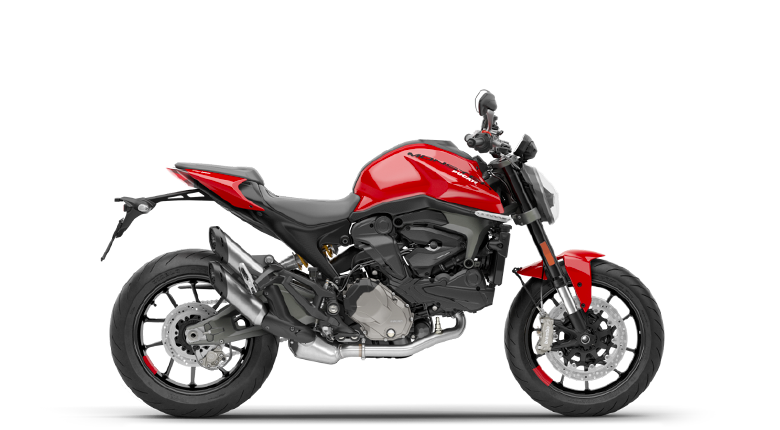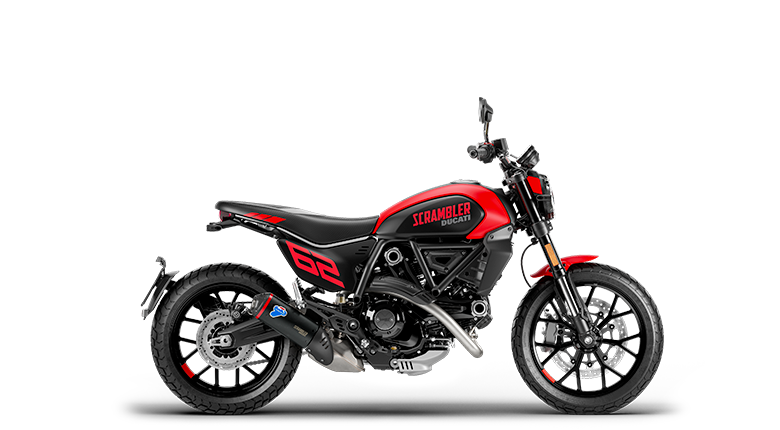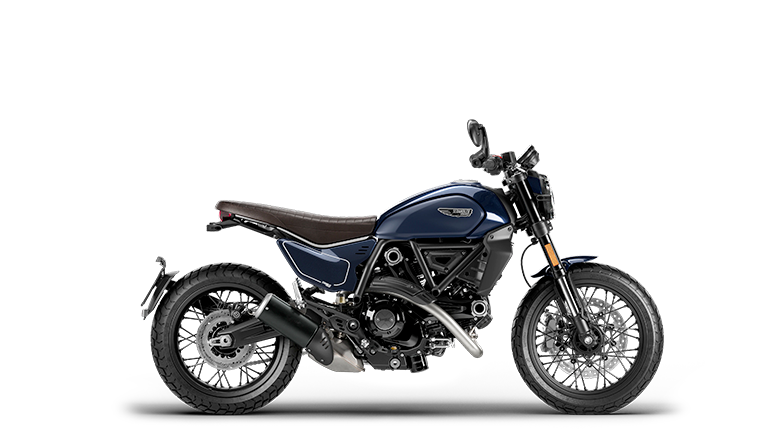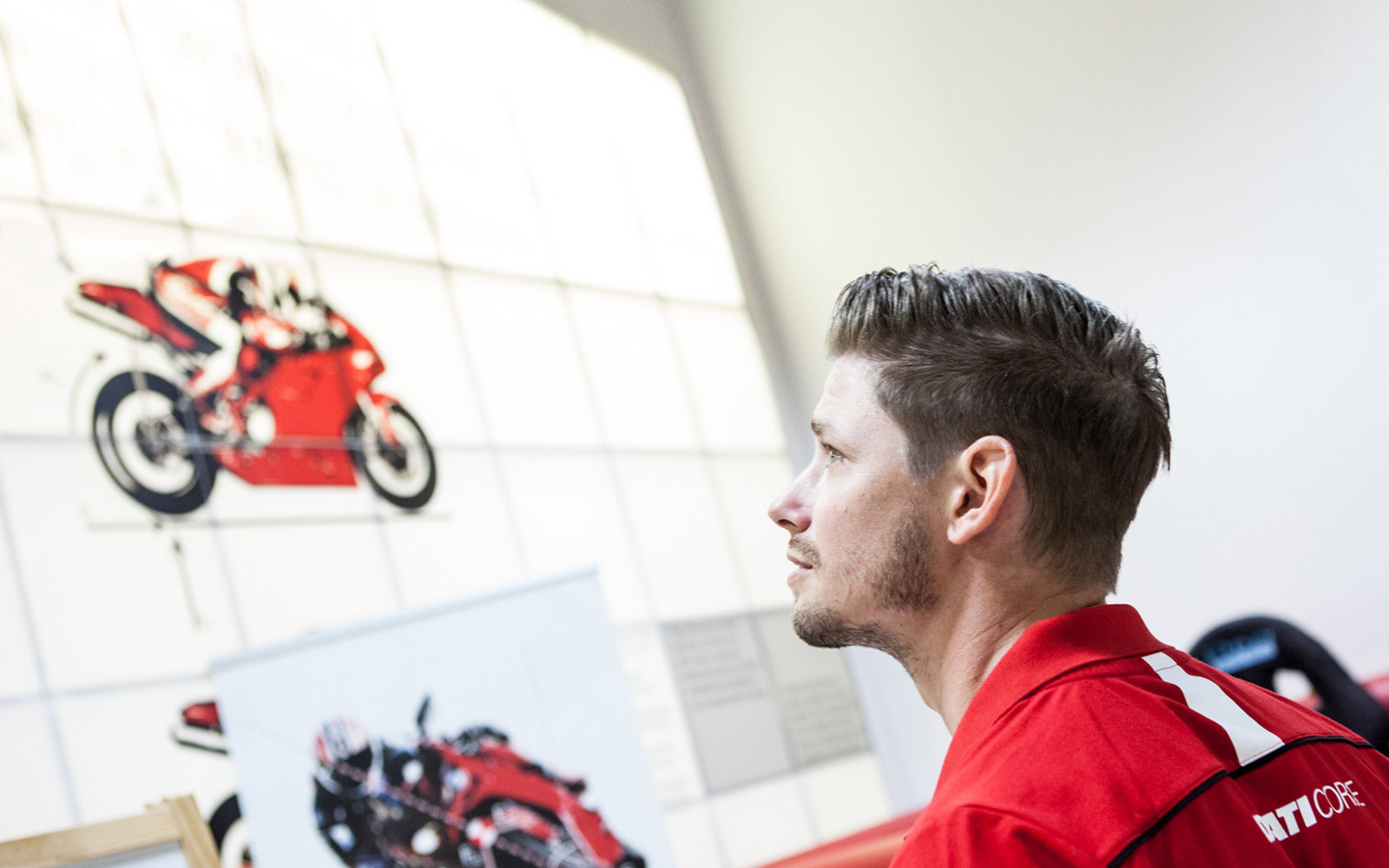- 170 hp Power
- 125 Nm Torque
- 840 mm Seat Height

Epispde 2
Casey Stoner
Interview with Casey, October 2018
The name Casey Stoner needs no introduction. In recent years, the two-time Australian World Champion has chosen to be more Casey and less Stoner, to build the professional dimension that has allowed him to reconcile private life, sustainable rhythms and the commitments of motorcycle racing. It’s a balance that you notice straight away upon meeting him. Casey is exactly as he appears: a genuine and kind individual, mature beyond his years, who puts respect and fairness before everything else, even if in the big world of MotoGP his reserved nature and his choices have often seemed unconventional. We had a long informal chat with him about the most personal aspects of his long-term relationship with motorcycles and his exciting return to Ducati. Here’s what he told us.
Your family encouraged and supported you a lot; your father was always by your side throughout your career. What was the most important thing that you learned during those years?
Well, since I started out so young, obviously it was my parents who first put me on a bike, with a strong desire to see me do well. This taught me that you don’t get anywhere in life without having someone on your side: a parent, a good friend or a sponsor. Your shared passion brings you together and that helps you to reach your goals in life.
You raced and competed on dirt tracks until you were fourteen years old, is that right? Did this influence your racing style, above all when you moved up to MotoGP level?
In Australia, you can only race on dirt track or motocross until fourteen years of age. There’s no minimoto or anything like that, like in Europe. However, I learned a lot riding off-road. Then, when I started road racing, it took me quite a number of years to gain the same confidence as the European riders. But when I graduated to the more powerful categories, it became easier for me because I could fix the problems of front end traction by using the power of the rear.
Did you have one particular hero, a racer who really inspired you?
Mick Doohan has always been my role model, since I was very young. Even before he was World Champion and before the accident that wrecked his leg. The fact that he came back and won races and dominated for a long time reconfirmed to me that he was the greatest racer ever: he was the type of person I wanted to emulate. We even raced together. It was such a privilege to get to know him!
Casey, your father was a racer, and your older sister also raced motorcycles when she was young. Is your passion for motorcycles something you inherited from your family?
Yeah, kind of. My father used to prepare bikes and race, but not at a professional level. And my sister used to race when she was very young, but then she quit. Then, it was my “turn” to represent the family in racing. So for me, that’s where the passion comes from.
You began riding when you were only three years old, on your sister’s motorbike, is that correct? What is your favourite memory from that period?
Well, I was very small. But looking at photographs from that period you can see that I enjoyed it more than anything else. I wanted to ride at all hours of the day. The only restriction was how much fuel was in the tank! By the time I was old enough to have my own memories, I was already very competitive, and I did everything I could to become better. But most of the best memories I have are linked to just enjoying bikes with my friends and family. For example, just having fun all afternoon riding on a small track.
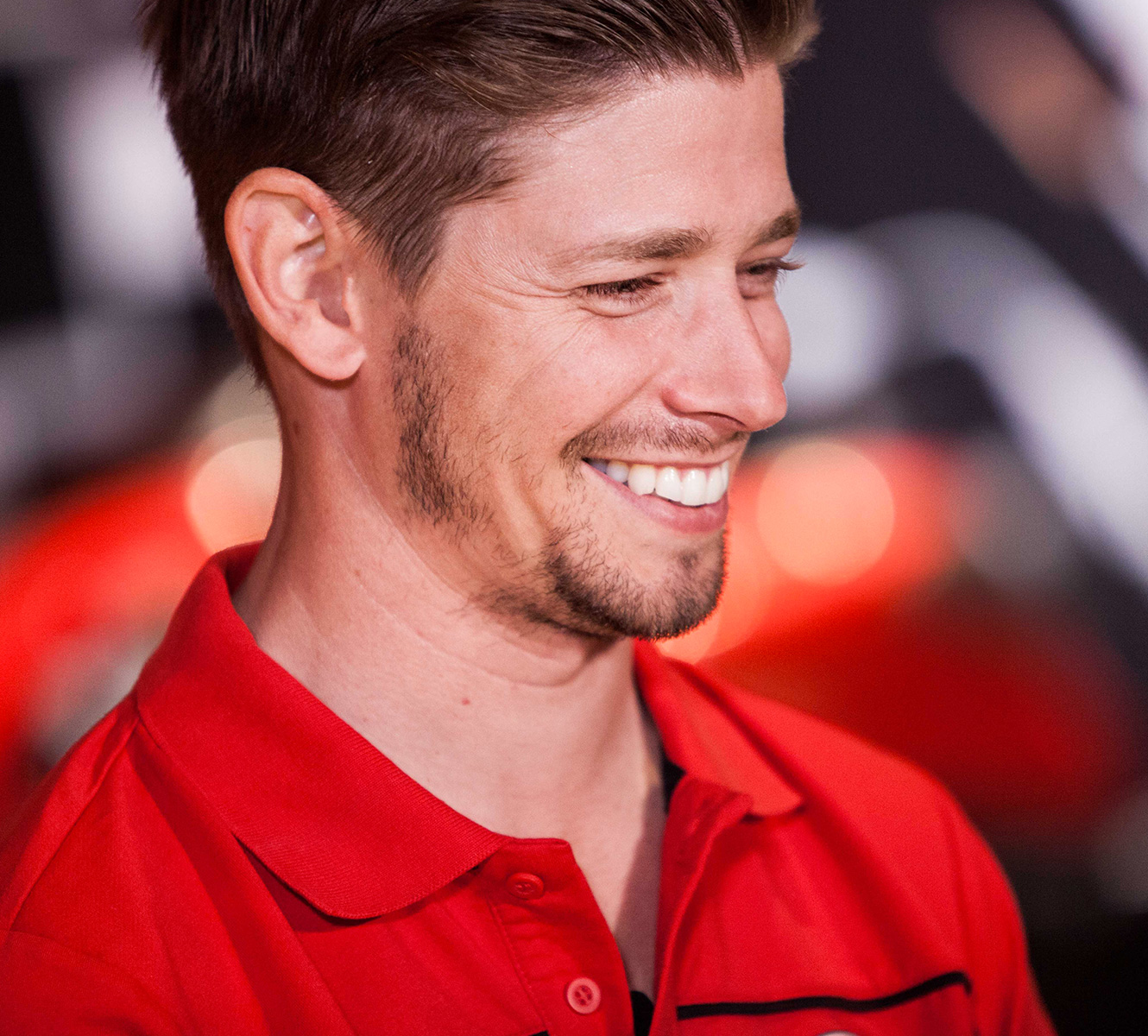
In 2012, you decide to retire from MotoGP at the peak of your career. But then your passion led you to return to the sport, with Ducati.
Yeah, that was a big decision and not one I took lightly. At that point, in 2009, I was having some health problems; I kept getting tired out on the track. Then we discovered that I was lactose intolerant, and so I wasn’t absorbing the nutrients I needed to create energy. We fixed that problem and my life changed for the better. But at that point I also understood that there’s more to life than just racing and that sporting success wasn’t everything to me. It was a big decision, but one that I’m very happy with. Going back to Ducati was a challenge for me, but it was a decision I made out of passion. I felt I could help Ducati return to the top, and I wanted to help them win races again. I went back to work alongside people that I had shared great successes and fantastic memories with. It was a great feeling. When you work with people you trust, like I do at Ducati, you develop very close relationships, and you can see that with the results on the track. Going back to Ducati was like going home.
In what way is Casey Stoner today different to the Casey Stoner who rode the Desmosedici?
Well, when I was racing even the tiniest thing could make a difference. You have a team that’s working very hard and a company behind you, and they expect a lot from you, and the slightest mistake on your part can lose a race or a championship. Now I can just enjoy working with the team, without the pressures I had before. I’m very proud when we take a race win or have a great race, because I feel like I’ve done the best I can to give the riders the best equipment to challenge. My values haven’t really changed from when I was racing, but now I have even more energy to focus on what we need to do as a team, which is developing the bike.
All Ducati fans are very attached to the world title you won in 2007. Do you have any amusing story to tell us about that very special moment?
Winning the 2007 Championship was a fantastic experience. After a small celebration we went back to the hotel, packed up and hopped on the bus to travel to our next destination. The driver decided not to take the motorway to the airport, and since I hadn’t eaten anything - I had just had some Champagne to celebrate - those two hours on windy roads, on an empty stomach, were an absolute nightmare. But looking back, we can laugh about it now… After the last race in Valencia we got to celebrate a bit better. We had fantastic support from the Ducatisti and everybody in Ducati
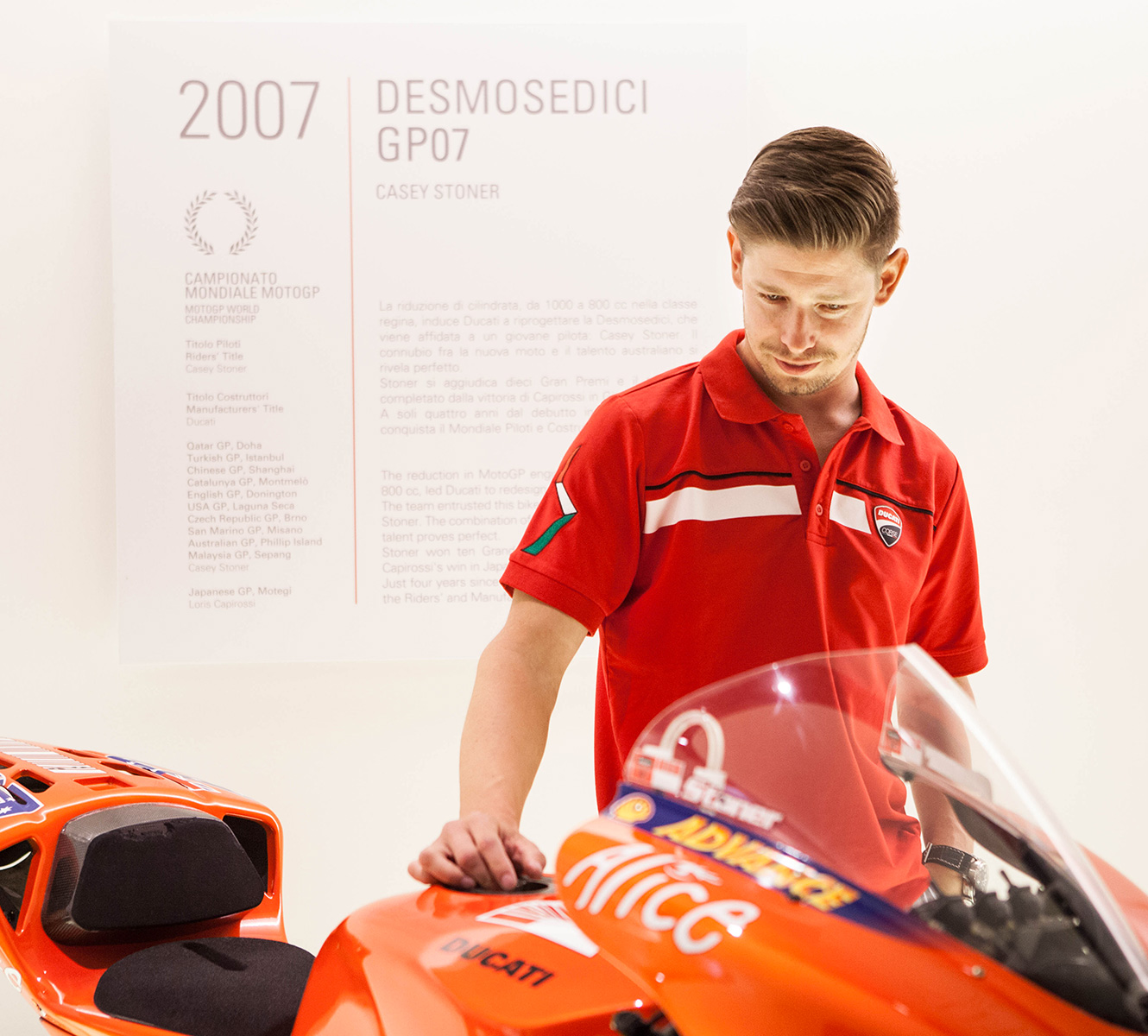
You probably have more opportunities now to go riding for pure enjoyment. What kind of motorcyclist are you in your free time?
I don’t feel the need to go fast, there’s always the track for that. I just ride around, or I go offroad. I love discovering new trails. I can finally enjoy riding off-road like I used to; it’s one of the things I love most. I’m lucky enough to get to test fantastic new bikes on track, as well as go riding in nature with my friends.
What’s the most important thing you learned from motorcycling?
Well, I learned a lot from defeat: for example, I learned how to deal with adversaries and teammates, which I think is also useful in life. Before, I used to defend myself from what I perceived as attacks, while now I’ve learned to welcome that and use it to my advantage. Racing helped me to understand different kinds of people and situations, to accept other people’s opinions, and to live life better.
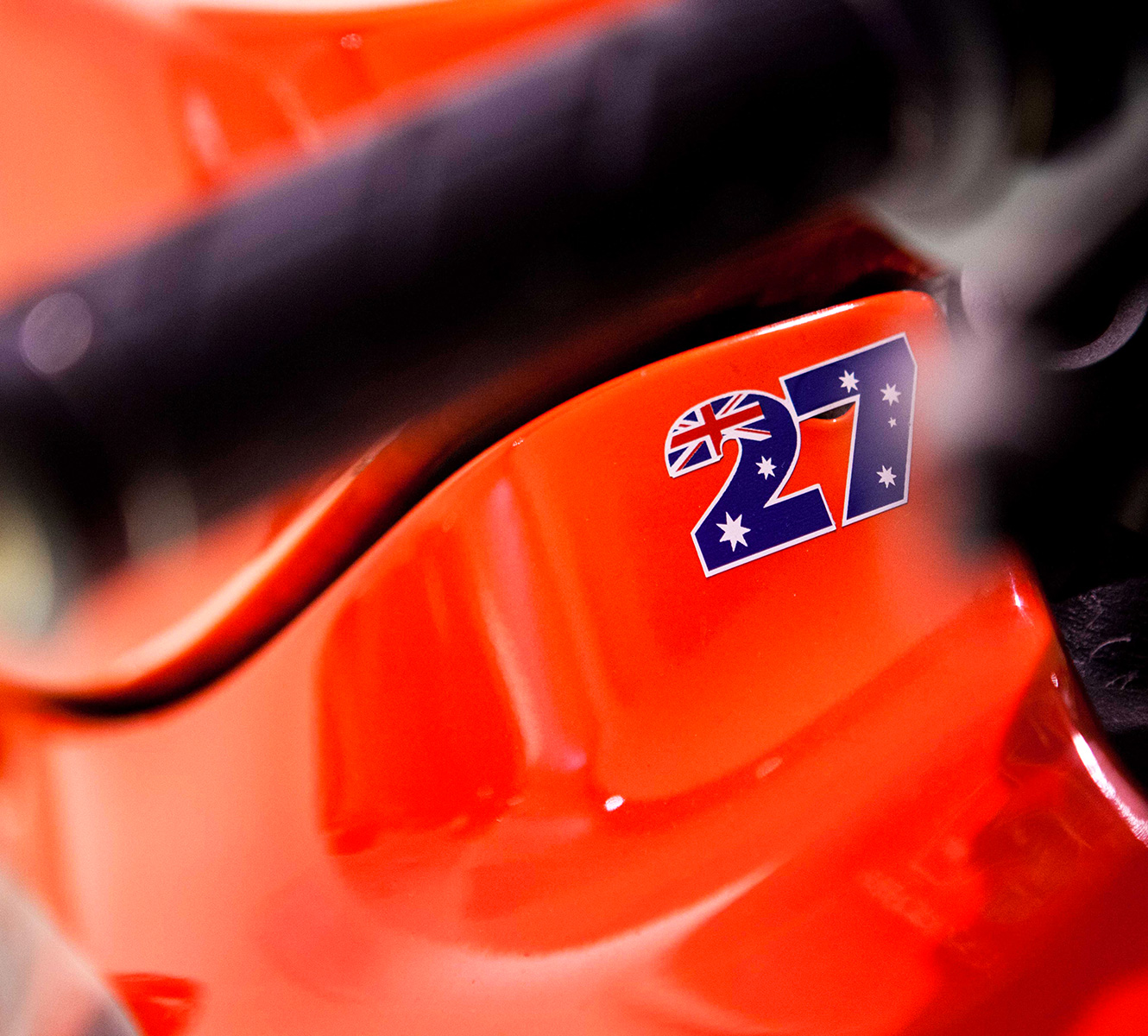
Your firstborn, Alessandra: she’s so young but she’s already a brilliant motorcyclist. Are you proud of her?
Yeah, my daughter is six and a half years old and has been riding since she was three. But not every day or even every week; she likes dancing more… Sometimes we go riding together and we have a great time. I don’t want to force her to ride just because I do it. I think she’ll do something different in life, but I want to be the one to teach her how to ride. Motorbiking will always play a big part in our family.
What would you like to teach your children from the world of motorcycling?
I just want them to love riding in their own way. It’s different for everybody. It could be the riding style, the wonderful emotions you get riding off-road or on the track, that sense of adventure, the speed or even the mechanical side to it. I’d like them to go riding together, but I don’t want to put any pressure on them. We’ll see what the future brings!
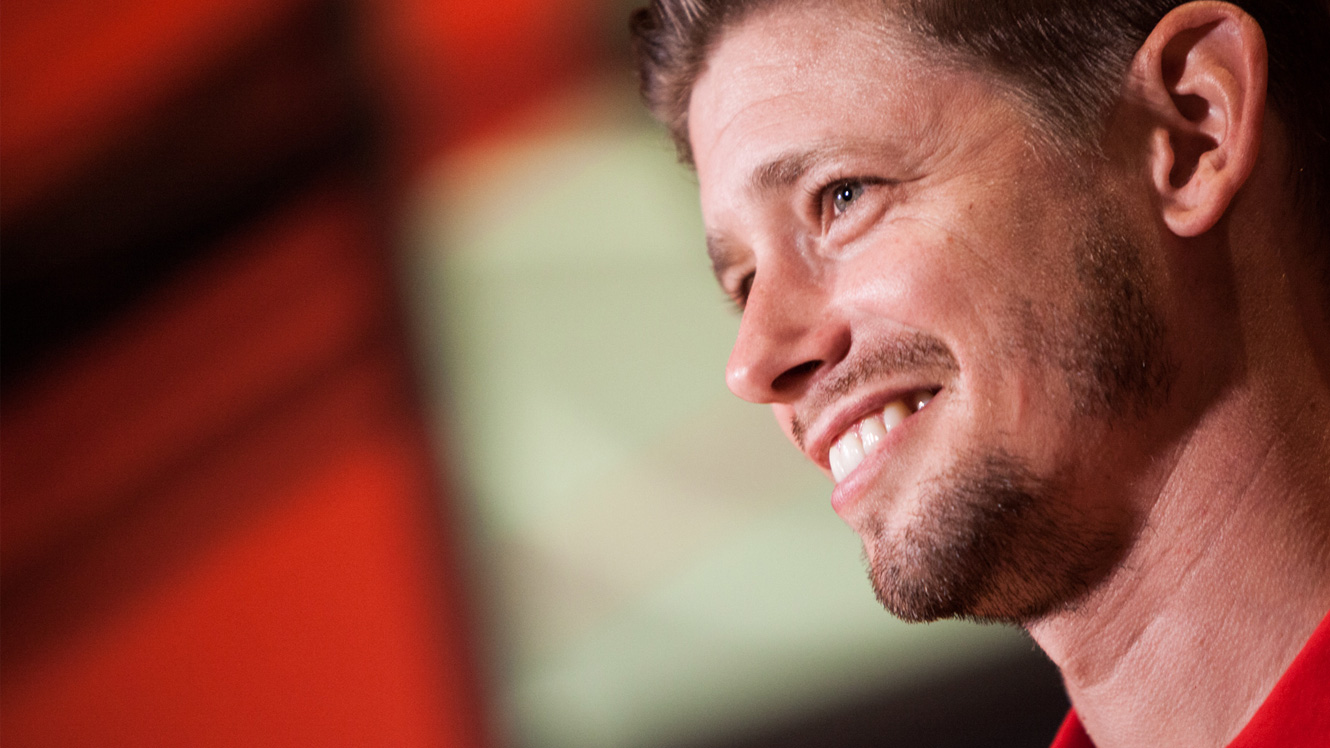
 Malaysia
Malaysia
 Multistrada
Multistrada Streetfighter
Streetfighter Panigale
Panigale Hypermotard
Hypermotard Monster
Monster Scrambler
Scrambler DesertX
DesertX
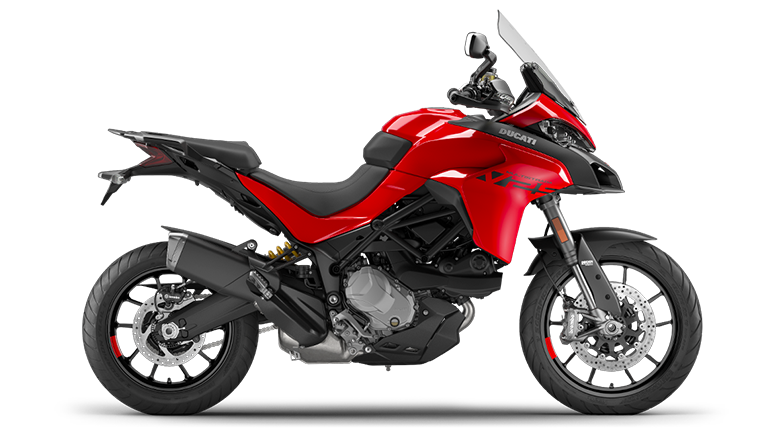

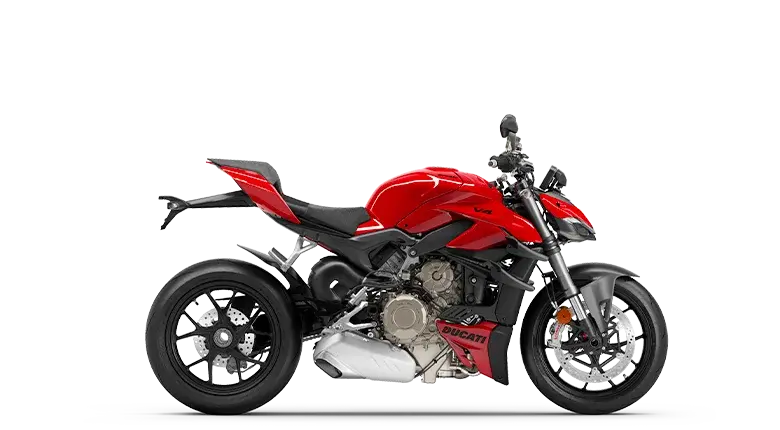
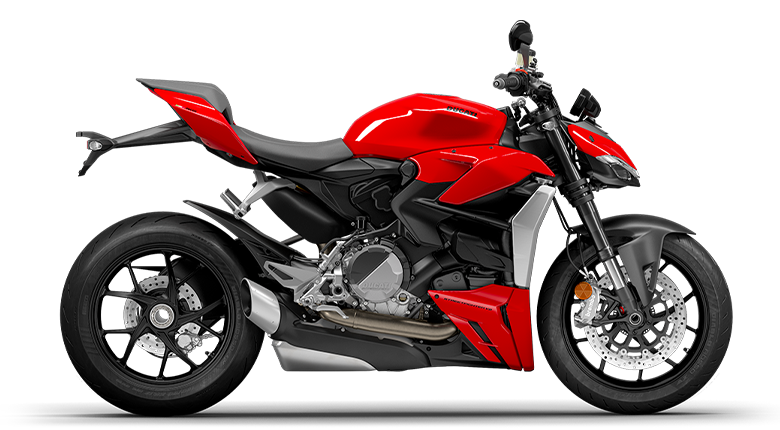
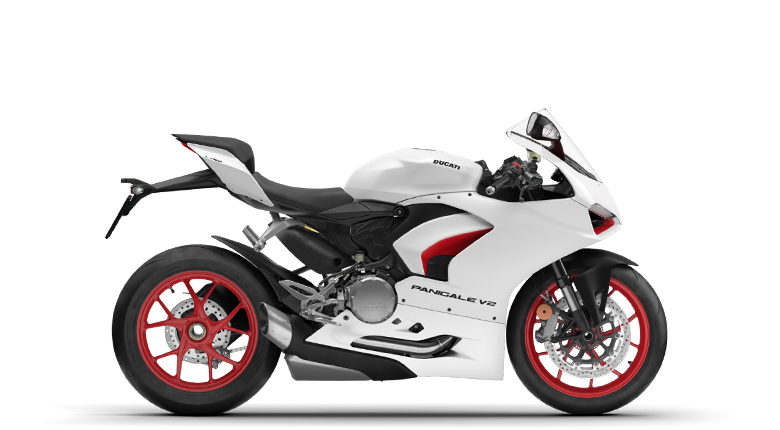
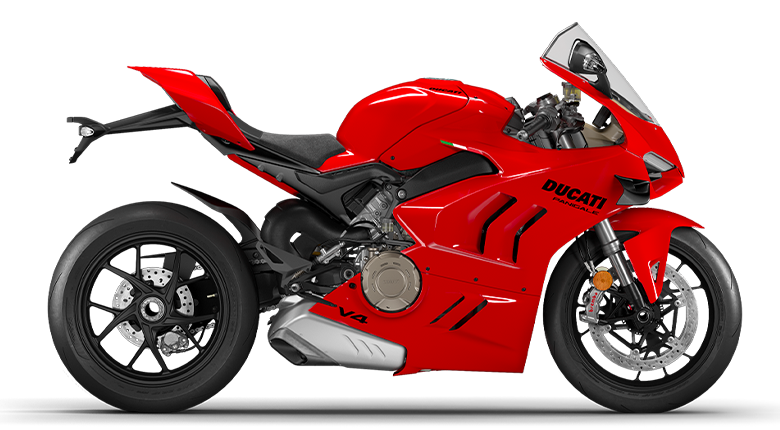
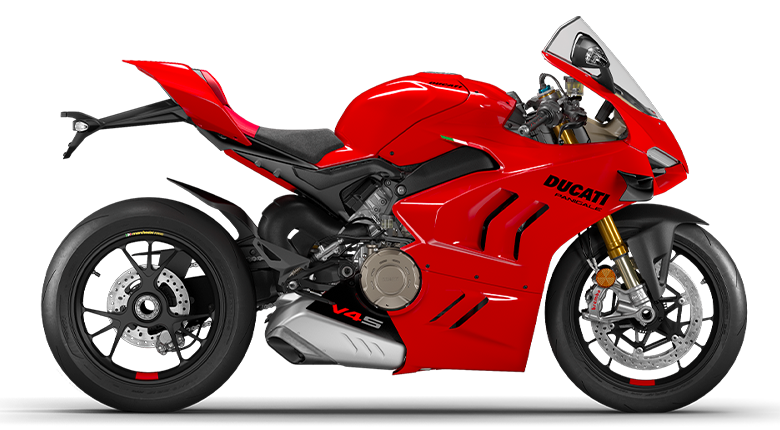
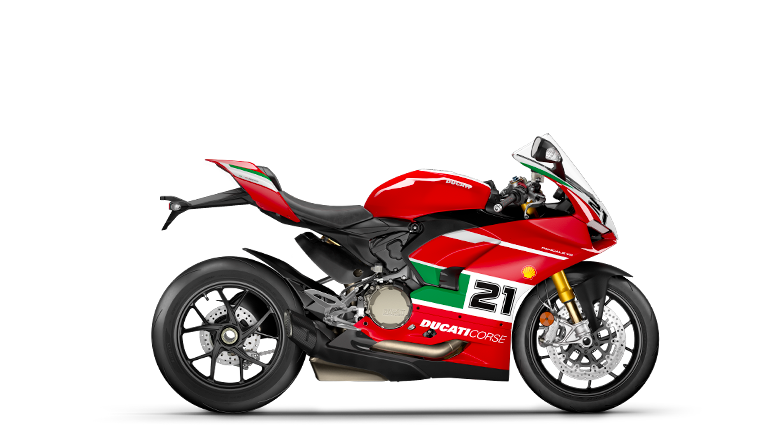
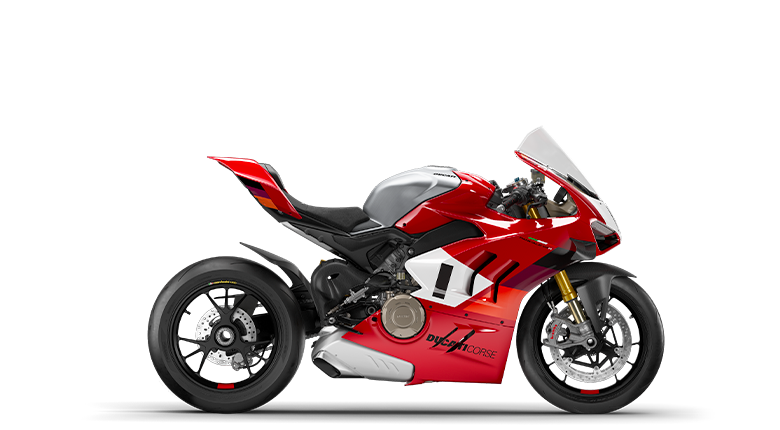
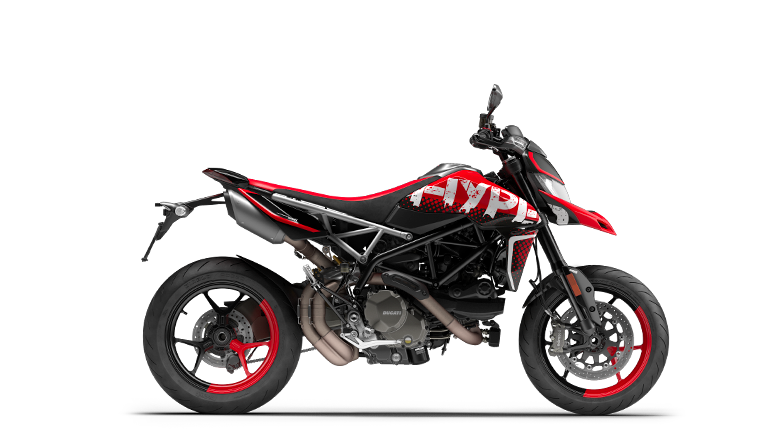
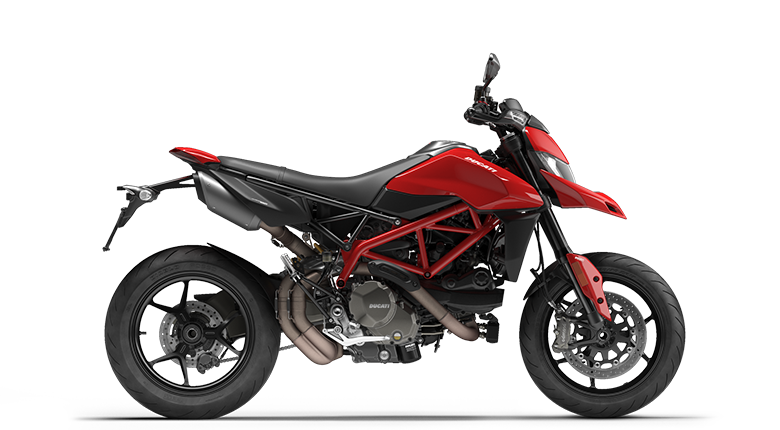
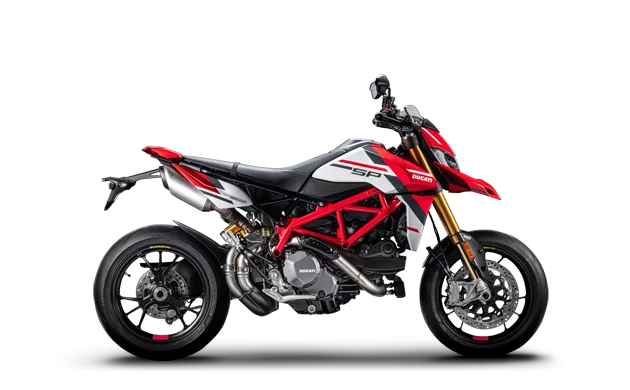
.png)
